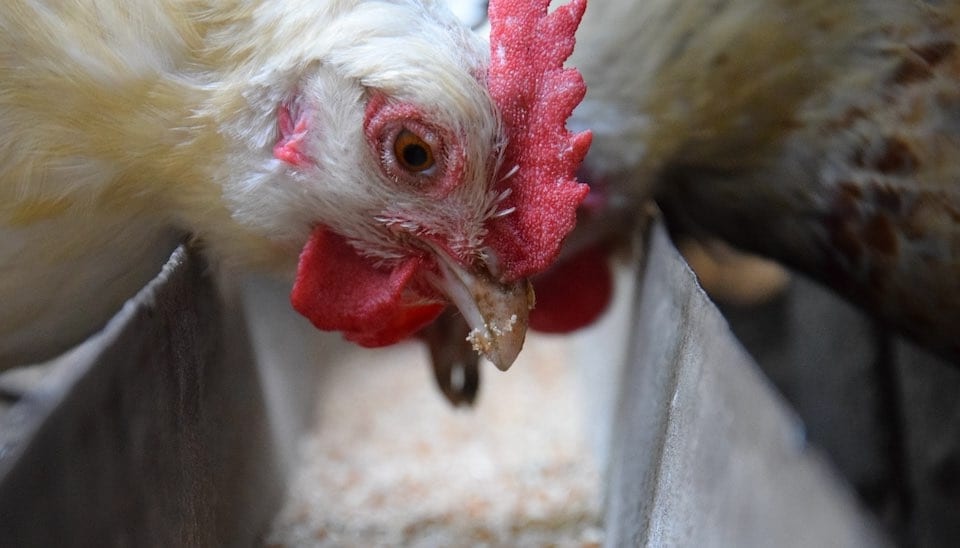Top 6 Ways to Prevent Disease in Chicken Coop
Top 6 Ways to Prevent Disease in Your Chicken Coop
Keeping your backyard flock healthy is essential if you're a chicken keeper in New Zealand. Healthy hens lay better eggs, live longer, and resist diseases and parasites. The secret to a happy, thriving flock lies in good coop management. From keeping your coop clean to protecting your chickens from environmental stress, there are a few simple practices you can follow to keep your chickens healthy and disease-free.
In this guide, we'll walk you through the top ways to prevent disease in your chicken coop, such as maintaining cleanliness, avoiding overcrowding, and using the right chicken drinkers and feeders to reduce contamination.
1. Keep the Chicken Coop Clean
Keeping the coop clean is one of the most important ways to prevent disease. Poultry parasites, like mites and lice, thrive in dirty environments, and many diseases spread through droppings. Regular cleaning keeps these threats at bay, helping your chickens stay healthy.
Here’s an easy DIY cleaning solution that’s safe for your chickens:
- Simple Coop Cleaning Solution: Mix 35ml of apple cider or white vinegar with 450ml of water in a spray bottle. Spray surfaces and wipe them clean with a damp cloth.
- Stronger Cleaning Solution: Mix 60ml of baking soda with water and add 150ml of vinegar in a 2-litre sprayer for tougher spots.
For stubborn droppings, use a baking soda paste and a scrubbing brush for easy cleanup.
Other tips for keeping the coop clean:
- Set up roosts so hens don’t sleep in their droppings.
- Clean up droppings regularly and replace bedding every two weeks.
- Treat the coop for mites and other pests regularly.
- Place the coop in a sunny, well-drained area and use bird netting to protect against wild birds and rodents.

2. Avoid Environmental Stresses
Stress is a major trigger for illness in chickens. Whether it’s overcrowding or extreme weather, reducing stress can help your chickens stay healthier.
Here are a few ways to reduce environmental stress in chickens:
- Don’t overcrowd the coop—give your chickens plenty of space to move around.
- Protect them from extreme weather with a well-insulated coop.
- Use a reliable Dine-A-Chook chicken drinker to keep water fresh and accessible.
- Provide shade and ventilation to keep them cool during hot months and dry in wet weather.
- Support your chickens during stressful times, like moulting or breeding, with supplements like electrolytes or probiotics from your local pet store.
3. Keep Your Chickens Healthy
A healthy chicken is far more resistant to disease and parasites. By maintaining your chickens' overall health, you’re helping them fend off infections naturally.
Here’s what you can do:
- Provide a Dust Bath: Chickens need a dust bath to stay free of parasites like mites and lice. You can either give them access to a natural dirt area or add chicken dusting powder to their bath to help keep them clean.
- Balanced Diet: Make sure your chickens are eating a well-balanced diet.
- Use Probiotics and Supplements: Just like humans, chickens benefit from probiotics and supplements. At Dine-A-Chook, we recommend 2 Pak Probiotics for daily use, and VetRx Poultry Remedy to boost immunity against colds and respiratory infections.
- Feed Off the Ground: Avoid placing feed directly on the ground, where it can be contaminated by droppings. Use clean, dry dishes or a proper feeder like the Dine-A-Chook feeder to keep feed safe.
4. Implement a Health Management Program
A health management program can help you prevent illness before it takes hold. Prevention is always easier and more effective than treating disease after the fact.
Here are some essential parts of a good health program:
- Vaccinate Against Coccidiosis: Many commercially sold chicks are already vaccinated against coccidiosis. If you're buying from a reputable breeder, ask whether the chicks have been vaccinated. You can also use medicated feed to treat chickens infected with coccidiosis, but keep in mind that medicated feed isn’t suitable for laying hens.
- Regular Worming: Treat your chickens for worms twice a year, ideally in spring and autumn. Speak to your local pet store or poultry supplier about worming treatments.
- Treat for Mites and Lice: Mites and lice can cause serious issues if left unchecked. Treat your chickens and the coop at least twice a year, and use an insecticide to prevent infestations.
5. Avoid Introducing Disease and Parasites
There are several ways diseases and parasites can find their way into your chicken coop. Keeping them out is key to maintaining a healthy flock:
- Control Rodents: Rats and mice are known carriers of disease. Prevent them from accessing your chicken coop by using a rodent-proof feeder like the Dine-A-Chook feeder, which reduces spilled feed that typically attracts rodents. Dispose of any contaminated feed immediately.
- Limit Wild Bird Access: Wild birds often carry worms and other diseases that can spread to your flock. Use quality bird netting to block these birds from accessing your coop and its feed.
- Avoid Feeding Pests: Insects like slugs and snails can carry worm eggs that infect your chickens. Limit their access to these pests as much as possible.
- Quarantine New Birds: Introducing new birds to your flock is risky, even if they come from a certified breeder. Isolate new chickens for two weeks before introducing them to your flock to monitor for signs of illness.
6. Remove Sick Birds Immediately
If you spot any birds showing signs of illness, it's important to isolate them from the rest of the flock as soon as possible. This helps to prevent the spread of disease and gives the sick bird a better chance of recovery.
Here's how to care for a sick bird:
- Isolate: Move the bird to a warm, separate space. Keep it hydrated and provide an electrolyte solution like AviLYTE, which you can give using a spoon or dropper if necessary.
- Treat the Whole Flock: If the illness is caused by parasites, such as worms, it’s often a good idea to treat the entire flock. Even if only one bird is showing symptoms, the rest may already be infected and just not showing signs yet.
By following these six key steps, you’ll significantly reduce the risk of disease in your chicken coop and help your flock thrive. Prevention is always better than a cure, so make coop cleanliness, proper feeding, and proactive health care part of your daily routine.
FAQ
1. Will baking soda kill chicken mites?
Baking soda doesn’t directly kill chicken mites, but it can help clean and deodorize the coop, making it a less attractive environment for mites. It’s best used alongside other treatments specifically for mites, like diatomaceous earth or insecticidal dust.
2. Will vinegar kill mites in a chicken coop?
Vinegar alone won’t kill mites, but it can be an effective cleaner when used in combination with other natural treatments. Vinegar helps clean surfaces and remove dirt, which reduces the likelihood of mites thriving.
3. How often should I clean my chicken coop?
Ideally, you should clean the coop thoroughly at least once every two weeks. However, regular spot cleaning, like removing droppings and replacing soiled bedding, should be done weekly to keep the environment healthy.
4. Can stress make chickens sick?
Yes, stress can weaken a chicken’s immune system, making them more susceptible to illness and parasites. Overcrowding, extreme weather, and poor nutrition are all common stress factors that can affect your flock's health.
5. What’s the best way to prevent mites in the coop?
The best way to prevent mites is by keeping the coop clean, using a regular mite treatment, and providing a dust bath for your chickens. You can also use bird netting to keep wild birds, which can carry mites, away from your coop.
If you have questions or want more tips on keeping your flock healthy, feel free to contact us.






